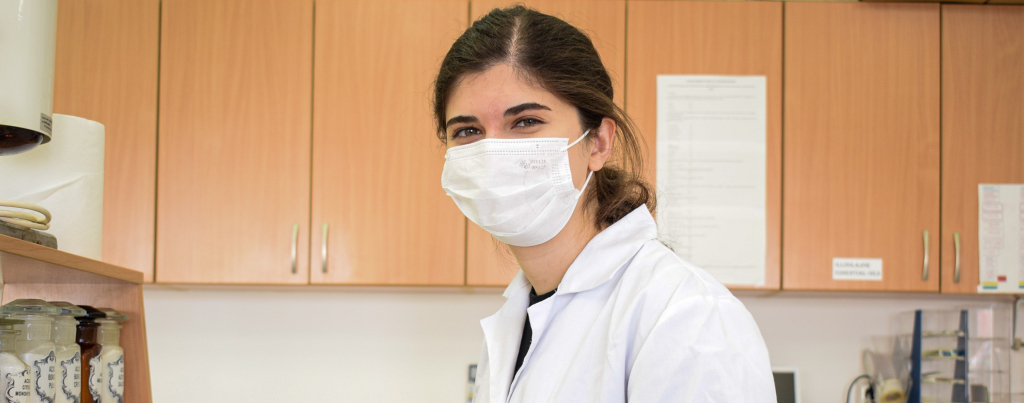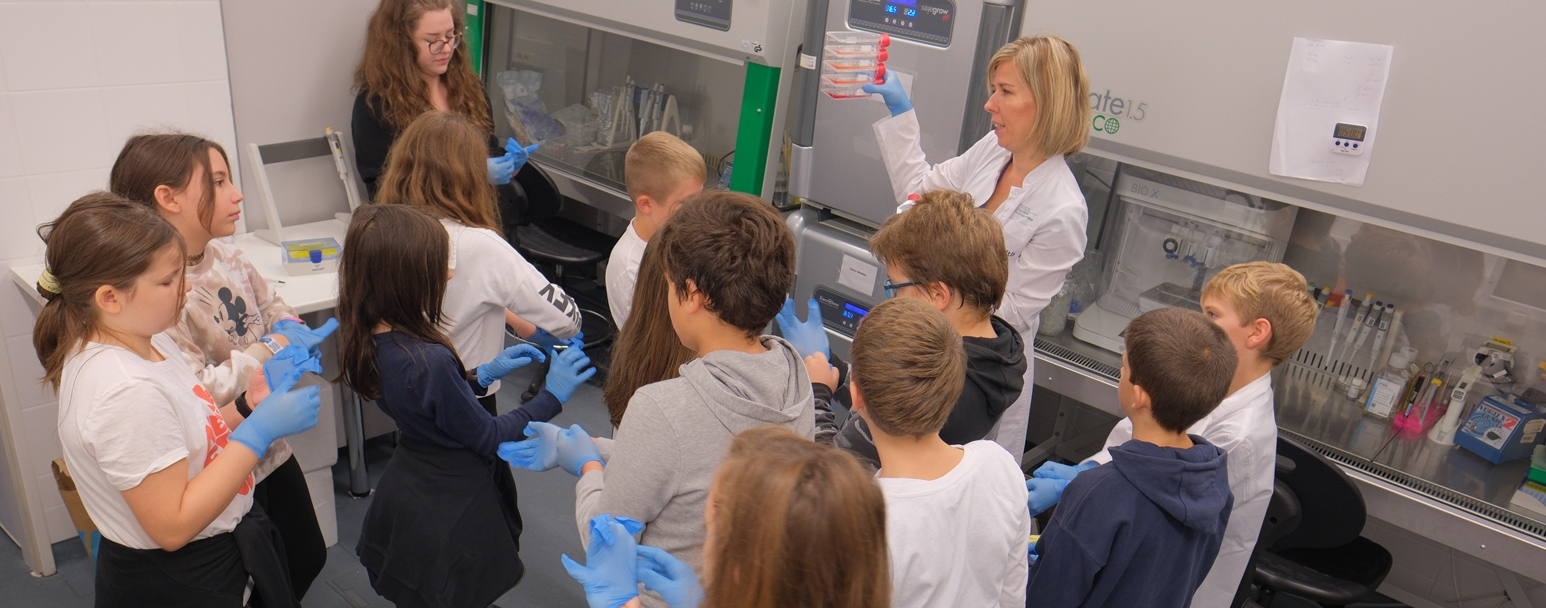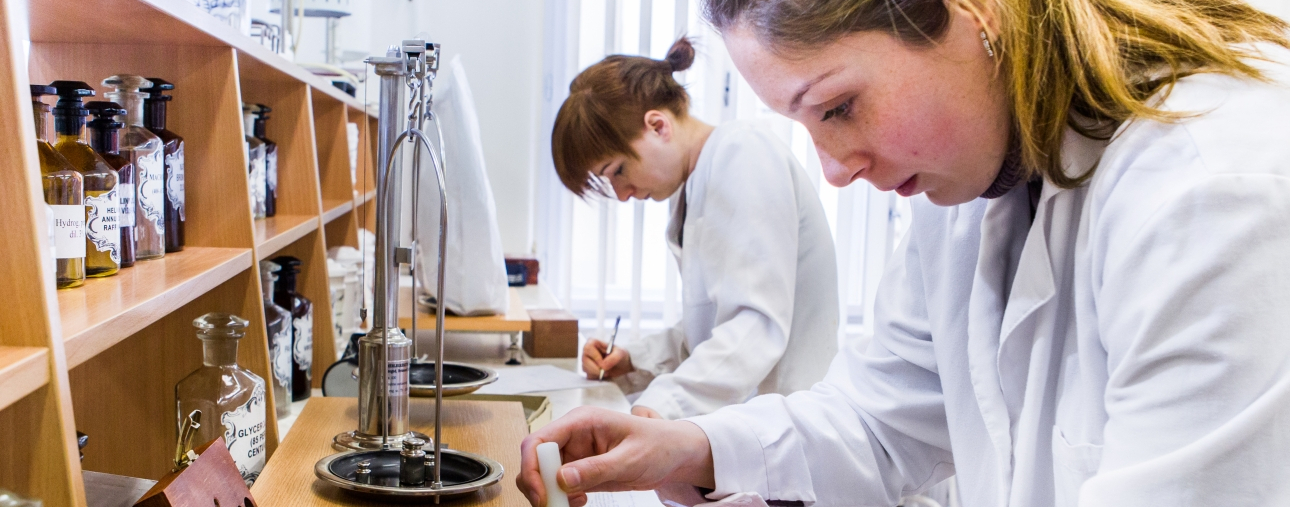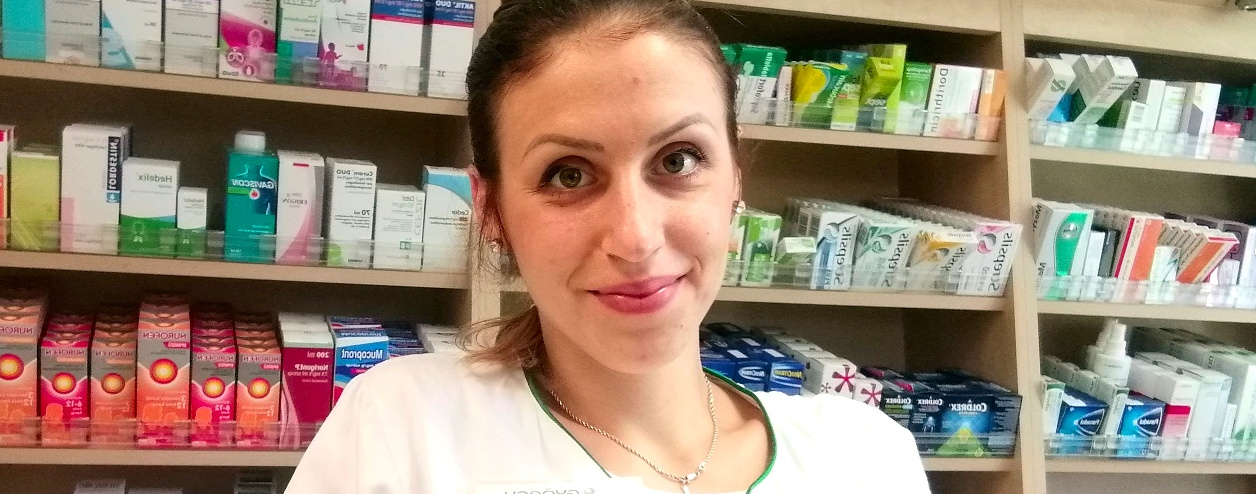News
"The pharmacy degree and the knowledge gained with it has lots of potentials"
Monday, 13 December, 2021
Dr. Miklós Poór's interest in chemistry led him to pursue a career in pharmacy; he is a Junior Prima Award-winning senior lecturer at the University of Pécs Faculty of Pharmacy who believes that the knowledge gained through the training offers both wide-ranging career opportunities and stable existence. Despite being 34 years old, the young researcher has earned serious professional recognition, helps TDK and Ph.D. students, and leads a research group at the Faculty of Pharmacy in Pécs. They examine why not all natural compounds should be considered unconditionally safe.
Written by Viktor Harta
We learned from Miklós Poór in advance that his interest in chemistry had navigated him to the field of pharmacy. He studied chemistry at the Lajos Nagy High School of the Cistercian Order in Pécs, and in addition to his good academic results, he also won a prize in a county competition in the subject he loved. When choosing a profession, the main consideration was to continue his studies in chemistry. There were two possible career paths to choose from: chemistry and pharmacy; both were attractive, and he chose the latter.
"I thought that the degree in pharmacy and the knowledge gained with it has lots of potentials. On the one hand, it is a discipline where chemistry can be put to good use, but at the same time, one can get acquainted with many other things; such a qualification opens many doors. In addition, I found the existence of a pharmacist impressive, which can also be achieved with this degree," said Miklós Poór, who continued his studies in pharmacy at the UP Medical School after high school. The choice proved to be a good decision; he believes that pharmacy training gives such multidisciplinary knowledge that provides significant career opportunities.

"People usually have a misconception about what a pharmacist does, or more precisely, what a pharmacist can do. Since pharmacists are most often encountered in pharmacies, people think a degree in pharmacy leads exclusively to the pharmacy. However, this is a misconception; the pharmaceutical industry, drug development, clinical practice, research, academic career are all open to pharmacists, and it can even occur that someone ends up in the perfume industry with this degree. There are a lot of professions today where this knowledge can be put to good use; you do not label yourself when choosing this career, this training means a wealth of opportunities."
"As a third-year student, I was convinced I was going to work in a pharmacy, and then it changed in the fourth year. Going forward in the studies, one begins to see the possibilities in more detail, whether the training or the pharmacy experience and, if appropriate, the TDK experience shape the approach," continues dr. Miklós Poór, noting that he also encourages students to try TDK. He graduated in 2010, defended his Ph.D. dissertation in 2014, and has been working with TDK students since 2016 but has been a co-supervisor even before that. As he put it, it is a highly motivating, inspiring task. In recognition of his tutoring activities, he received the Pro Cura Ingenii Prize of the University of Pécs in 2020.
"It is worth pursuing TDK activity not only because it can be a kind of entry into a research/academic career, but also because it allows students to acquire skills that are extremely useful in all areas of life. Examples include critical thinking and presentation skills. The latter does not just come in handy at the university: we use the same skill in the pharmacy, for example, when informing a patient or trying to dissuade them from making an incorrect choice. It is inconceivable that a TDK student does not participate in TDK conferences. The presentation skills can be greatly improved. It is a big mistake if we do not take advantage of the opportunities offered for this," explained Miklós Poór. As he said, he has worked with 13 TDK students so far and is extremely proud of their achievements. Most of the awards were received at local TDK conferences, and since 2017, except for one year, his students have received the award for best pharmacy student presenter. He added that they also have great achievements in connection with the national TDK conferences, and his students have finished in the first three places at the last three OTDK conferences.

"Although not only the places matter, but I must say that I am extremely proud of the recognition my Ph.D. and TDK students have received (New National Excellence Program scholarships, National Higher Education Scholarship, Ildikó Kriszbacher Talent Development Scholarship, János László Doctoral Research Scholarship, etc.). I am at least as proud of their achievements as I am of my recognitions because I feel I am part of their success. I see my younger colleagues who participate as co-supervisors that they are also very positive about the success of working together," the young researcher emphasized.
"It is rare for a young guy to get his own lab."
During our conversation, it turned out that Miklós Poór obtained his Ph.D. degree at the Department of Laboratory Medicine, where he ended up due to a toxicology topic he liked. He mainly performed fluorescence spectroscopic measurements and cell experiments there. Following his Ph.D. defence, he continued his work at the Toxicology Unit at the Department of Pharmacology and Pharmacotherapy, where he got acquainted with in vivo toxicokinetic studies. Then, at the UP Faculty of Pharmacy Department of Pharmacology, he had the opportunity to lead his own group at a very young age. In 2017 (at the age of 30), he won the János Bolyai Research Fellowship, the Junior Szentágothai Prize, and a young researcher OTKA application. In 2018, 2019, and 2021 he was awarded the ÚNKP Bolyai+ Scholarship; in 2019, he received the Cholnoky Instructor Award, the Junior Prima Award, and the Toxins Travel Awards, and in 2021 he was awarded the Bolyai plaque, and he received the János Bolyai Research Fellowship and a young researcher OTKA application for the second time.
"It is rare for a young guy to get his own lab, to have the opportunity to lead the research conducted there. It was a unique opportunity, and I experienced it as a kind of anticipated trust that I feel I have earned ever since. I was able to get an independent application source soon, as I won an OTKA application at the age of 30. Since then, I have received virtually every high-profile national recognition a young researcher desires. This, of course, means strong pressure to get to a higher level in the coming years. I have always said that such quantity and quality of work should be carried out that can no longer be questioned or downplayed. This is much easier said than done, as it takes six to seven years for a young researcher to be placed on the map, so to speak. By this, I mean that more and more people have started to cite their work and notice their activity both nationally and internationally. My very long years of hard effort have now led me to call myself a successful researcher. Besides, there is no reason for overconfidence; there is still room for development. It is, in fact, a lifelong learning process," he said.
"It is essential for a person to have specific goals. If someone can articulate clearly what they want to achieve in the short and/or long term and, of course, is willing to do it, that is already a partial success. Obviously, it does not hurt to have some idea about achieving these goals, so it is good to have an appropriate strategy. In addition, faith plays a significant role in the life of a researcher. Faith in the fact that we may have good ideas, that our experiments will be successful, that our research results will be of interest to others, etc. We all love experiencing success, but when we see the achievements of others, we often tend to ignore how much work and effort there is behind them. The latter is usually known only to one's immediate environment. I am incredibly grateful to my co-workers, my collaborators, and last but not least to my family and friends because I would not be here without their work and support. I have always believed in positive-positive interactions, both at work and in private life. It is also important that both parties benefit from it and find their motivations in a professional collaboration. Obviously, this is morally appropriate, but we also need to realize that the employees will be more motivated if we treat well, help, and support them. And those who feel good at work and are motivated perform better. Overall, the whole group becomes more productive, so everyone can really benefit from it," he emphasized.

"The fact that there is a natural compound does not necessarily mean that it is safe."
Miklós Poór is currently the leader of a small independent research group at the Faculty of Pharmacy in Pécs, consisting of an assistant professor, Ph.D. students, and a laboratory assistant. They are funded by several "smaller" applications, they do not have a very significant human, financial and infrastructural background or a well-known senior researcher, yet their publication performance is comparable to that of many research teams with much larger numbers, equipment, and past.
One of their main research directions is the topic of mycotoxins (mould toxins); they work together with several recognized domestic and international collaborators in this field.
"Mycotoxins are toxic compounds produced by moulds often found as contaminants in many food/beverages. There is a wide range of research in this area, including toxicokinetic interactions, but we also examine the combined effects of certain mycotoxins and mycotoxin metabolites. Furthermore, it is important to highlight our research aimed at identifying potential toxin-binding molecules," said Dr. Miklós Poór.
Miklós Poór is also interested in the issue of pharmacokinetic interactions, more precisely, food supplements. He focuses on how safe it is to use food supplements that can be bought online with medications and what interactions may occur.
"One of the main goals of our research is to draw attention to which substances and in which cases we should be more careful. It is important to point out that natural compounds are not always safe. Most of these are indeed low-toxicity compounds, but they may cause adverse interactions when interacting with other drugs. These are also molecules like those used in medicine; our drug treasure contains a wealth of natural compounds used for therapeutic purposes. In addition, a significant proportion of known toxic substances are compounds of natural origin. Natural origin does not in any way preclude a compound from causing toxicity or serious drug interactions. Food supplements often contain extremely high levels of natural compounds (e.g., flavonoids). Unfortunately, there is not enough information on their interactions, so often even a well-trained doctor or pharmacist cannot clearly say whether a particular flavonoid can be taken at the same time with different drugs. Thus, our results may be useful in understanding the molecular background of these interactions and identifying some problematic interactions," the researcher added.
"There are very few degrees that can provide such stable employment."
The first step to pharmacokinetics and toxicological research was the beginning of pharmacological studies. According to Dr. Miklós Poór, this career offers a lot of beauty and opportunities, but at the same time, it requires serious work and preparation; in return, it provides a good job, a stable existence, and a series of open career paths.
"A chemist has a better understanding of chemistry, a doctor knows anatomy and certain aspects of physiology better than a pharmacist, but a pharmacist has solid knowledge of both chemistry and biology, so he can even be in a liaison position between these areas. As a pharmacist, as a professional link, we can bring together collaborations whose participants may not be able to communicate smoothly with each other. In addition, it can be emphasized that there are very few degrees that can provide such stable employment, and even early-stage researchers can earn a fair salary."
F.jpg)
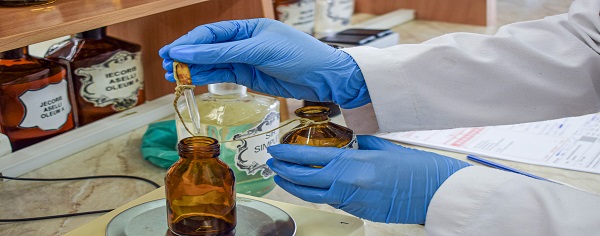


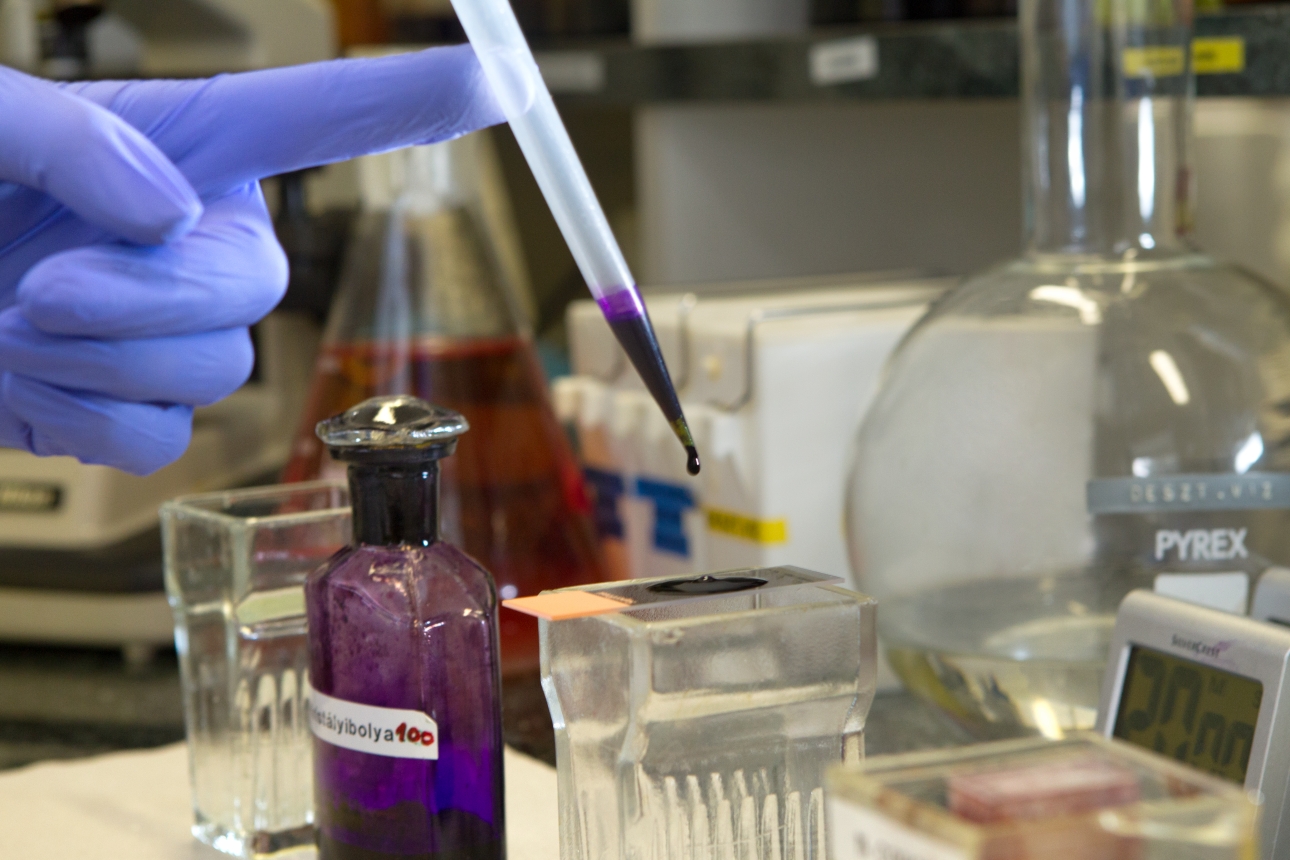

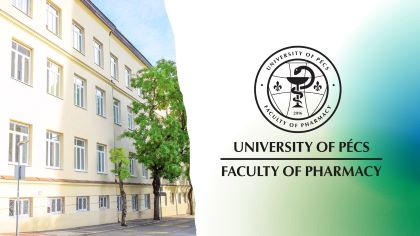
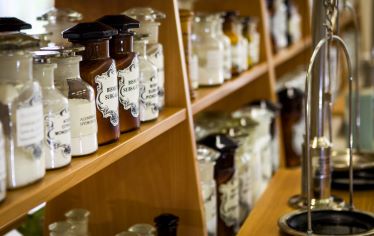
jpg.jpg)

